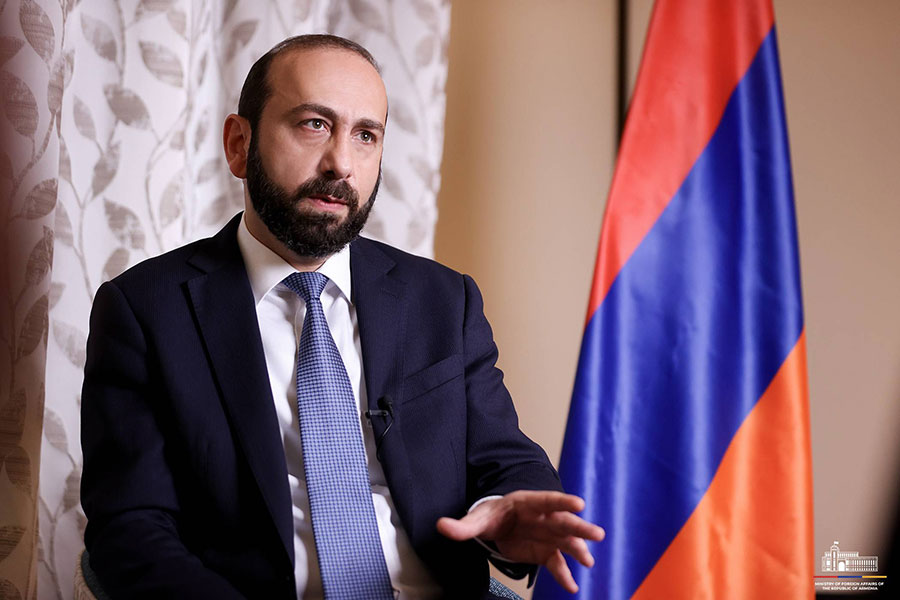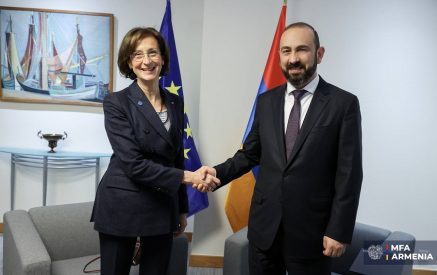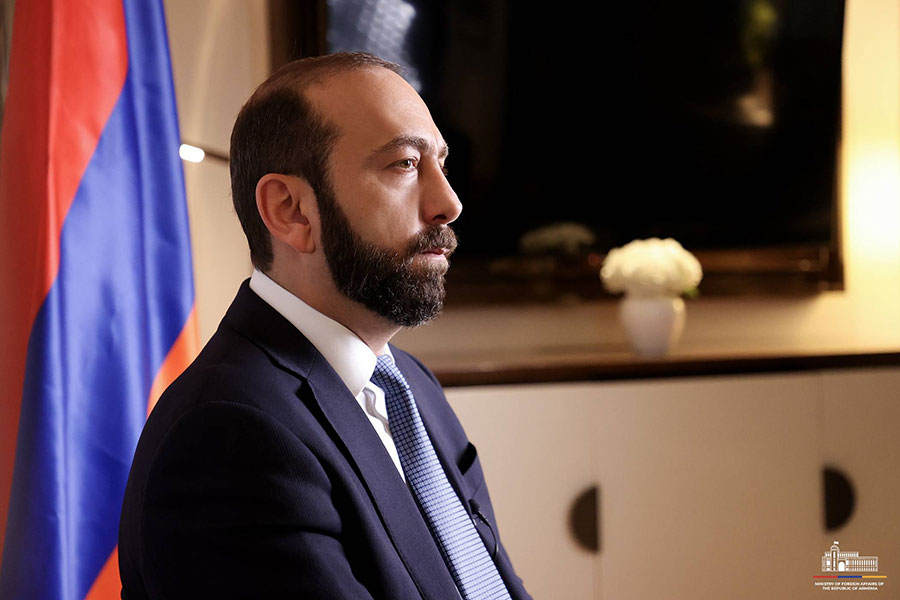The interview of the Minister of Foreign Affairs of Armenia with the “Arab News”
During his visit to Saudi Arabia on April 17-18 Minister of Foreign Affairs of Armenia Ararat Mirzoyan gave an interview to the «Arab News». Taking into account the historical nature of the visit which took place after the establishment of diplomatic relations between the two countries, the interview focused on the discussions held during the visit and on prospects of development of relations. Minister Mirzoyan answered the questions also on regional topics. Below we present the main quotes from the interview.
– Prospects of development of relations between Armenia and Saudi Arabia after the establishment of diplomatic relations
Read also
Historically we have enjoyed friendly relations with the Arab World, with all the Arab countries, and these relations have been based on traditionally, historically friendly ties between our peoples, between Arab people and the people of Armenia. And we also should remember that many Arab countries became home to Armenian refugees, the survivors of the Armenian Genocide. But of course, the cultural ties, the relations were there even before that. So in this context, it was also a little bit strange that between the Republic of Armenia and the Kingdom of Saudi Arabia, there were no diplomatic relations even. And in this sense, 2023 was indeed a historical year: we established diplomatic relations. And now I am visiting Riyadh, I am having meetings with the respective officials, and my colleagues here. And it is worth mentioning that the two countries, Armenia and Saudi Arabia, assure each other that this is only a start, we don’t want to stop here. There are so many areas, there are so many fields where we can deepen our cooperation, and there are so many spheres where we can explore what we can do jointly. And hopefully, after this visit a road map will emerge – a road map of the development of our relations.
I had meetings in Riyadh, not only with my counterpart, his highness the Foreign Minister but also I was received at the Ministry of Economy and Planning and the Ministry of Education where I met my counterparts, and we discussed the opportunities that emerge. And frankly, there is no limit here: education, sciences, advanced technologies, urban development, agriculture, tourism, people-to-people contacts, trade investments, infrastructure. There are so many things going on on the ground here in Saudi Arabia but also in Armenia. And of course, the future is quite promising for our cooperation
Our vision is that we should build a very good and close cooperation with Saudi Arabia including when it comes to regional affairs, but also international fora. I would like to mention that when Saudi Arabia came up with the bid for Expo 2030, Armenia was among the countries who supported it. And by the way, this is a very good occasion to congratulate Saudi Arabia.
– Regional topics
On conflict between Palestine and Israel
Armenia has always been supporting the two-state solution for Palestine and Israel. Armenia is strongly against the violence and targeting the civilian population. You remember several months ago we experienced a similar situation when as a result of the military attack by Azerbaijani armed forces more than 100.000 civilians, Armenians had to flee their ancestral homeland of Nagorno- Karabakh and found refuge and rescue in the Republic of Armenia. So we are really strongly against violence against the civilian population. And also it is probably worth mentioning that the Government of the Republic of Armenia sent humanitarian assistance to refugees from Gaza too. Our hope is that it could help, a little bit ease the situation and suffering of these people.
The vision of establishment of peace in the South Caucasus
We truly believe that there is a window of opportunity, a quite realistic momentum to establish lasting peace and stability in the South Caucasus. My Government is committed to this peace agenda, and we are engaged in negotiations in good faith and in a constructive manner. Although to tell the truth there are still a couple of crucial issues regarding which the positions of the sides are far from each other. The first issue is of course the issue of the borders and mutual recognition of territorial integrity which we are convinced should take place on the basis of the 1991 Almaty declaration.
We came up with the initiative we gave a title to it – “Crossroads of Peace” – because we truly believe that if the whole transport infrastructure is unblocked in the South Caucasus, including the Armenian, Azerbaijani and Turkish roads and railways, it will be not only beneficial in terms of economy, but also it will become a significant factor of peace and stability in our region.
Relations with Russia
Well it is fair to note that relations between Armenia and the Russian Federation are not at their brightest point, I would say. Of Course, there are complications and we can’t and we don’t want to hide these complications. There are issues, and there are questions within the Armenian society, for instance, regarding the behavior of Russian peacekeepers in Nagorno-Karabakh, but also regarding the behavior of our Russian allies when our sovereign territories were being attacked in 2022, 2023 and before that. So indeed there are some issues there but we work on it.
Relations with the European Union
When it comes to Armenia’s relations with the EU, indeed the people of the Republic of Armenia do have European aspirations. It is becoming more and more strong on the background of the frustration that Armenian people had in terms of Armenian-Russian relations, but not limited to that. I mean Armenia is really deepening, significantly deepening its relations with the United States, and with the European Union. They are our main partners in our democratic reform agenda. Now they show a strong willingness to support Armenia to strengthen Armenia’s economic resilience, but not only. So we are starting with the EU a new path of close partnership, and so far none can say for sure where this path will lead the two sides.
Ministry of Foreign Affairs























































